Ecological Mobility – This new material could change the world 02-12-2023
Ecological Mobility
This new material could change the world
In the realm of scientific breakthroughs, a name has emerged that could potentially alter the course of technology and energy transmission: LK-99, a superconductor that has ignited both excitement and skepticism. While its nomenclature might sound like the protagonist from a sci-fi narrative, the implications of this discovery are no laughing matter.
Hailing from the laboratories of South Korean scientists, LK-99 boasts the tantalizing prospect of being a room-temperature superconductor, a quality that could revolutionize technology as we know it. Unlike traditional superconductors that demand frigid temperatures to function optimally, LK-99 claims to defy this constraint by exhibiting superconducting properties at ambient temperatures. Ecological Mobility
The essence of this breakthrough lies in the ability to conduct electricity without any resistance, a feature previously achievable only under extreme cooling conditions. This characteristic has confined superconductors to niche applications, such as quantum computers and particle accelerators, due to the impracticality of sustaining extremely low temperatures for general use.
The composition of LK-99 comprises copper, lead, phosphorus, and oxygen. However, the international scientific community, particularly in America and Europe, remains cautious and skeptical about its superconducting claims. Ecological Mobility
According to some experts, the configuration of copper sulfide within the compound challenges the assertion of LK-99 being a genuine superconductor, suggesting it might be an insulator instead.
The unfolding saga of LK-99 underscores the precarious nature of scientific breakthroughs and the fine line between revolutionary discoveries and unfounded fantasies. As South Korean scientists champion the potential of this material, their global counterparts approach the claims with a healthy dose of skepticism.
The verdict on whether LK-99 will truly usher in a new era of room-temperature superconductors awaits the conclusion of further studies, leaving the scientific community and enthusiasts alike in suspense regarding the fate of this potentially world-changing material. Ecological Mobility
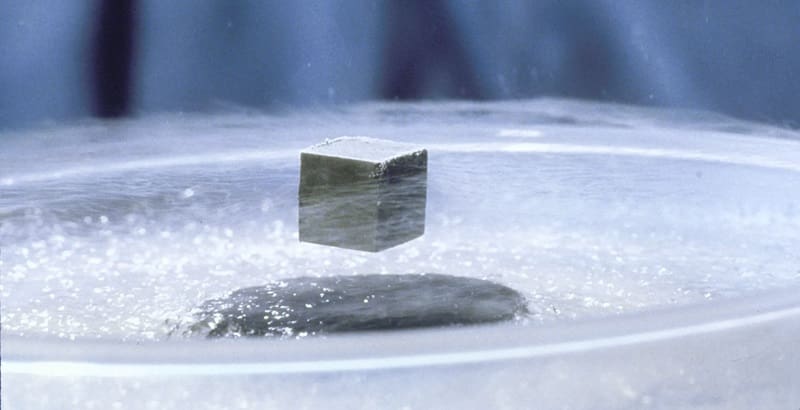
Borealis to acquire Integra Plastics AD, an advanced mechanical recycling player based in Bulgaria
- Borealis announces the signing of an agreement to acquire a 100 % stake in Integra Plastics AD, an advanced mechanical recycling player based in Bulgaria
- The investment will strengthen Borealis’ advanced mechanical recycling portfolio, adding more than 20,000 tons of recycling capacity and support growing customer demand for sustainable solutions
- The transaction is part of Borealis’ EverMinds™commitment to accelerate the transition to a circular economy and represents another critical proof point of that ambition
Borealis announces that it has signed an agreement for the acquisition of Integra Plastics AD, a Bulgarian advanced mechanical recycling player. Closing of this transaction is subject to customary regulatory approvals. Ecological Mobility
Based in Elin Pelin, Bulgaria, Integra Plastics AD operates a modern advanced mechanical recycling plant built in 2019 with state-of-the-art equipment. Integra Plastics has the ability to transform post-consumer waste into high quality polyolefin recyclates suitable for demanding applications.
“In line with Borealis’ Strategy 2030, we continue making steady progress on our circularity journey by reinventing essentials for sustainable living. The addition of Integra Plastics AD will strengthen our ability to deliver on our advanced mechanical recycling ambition and enable our customers to meet their sustainability targets,” says Lucrèce Foufopoulos, Borealis Executive Vice President Polyolefins, Circular Economy Solutions and Innovation & Technology. Ecological Mobility
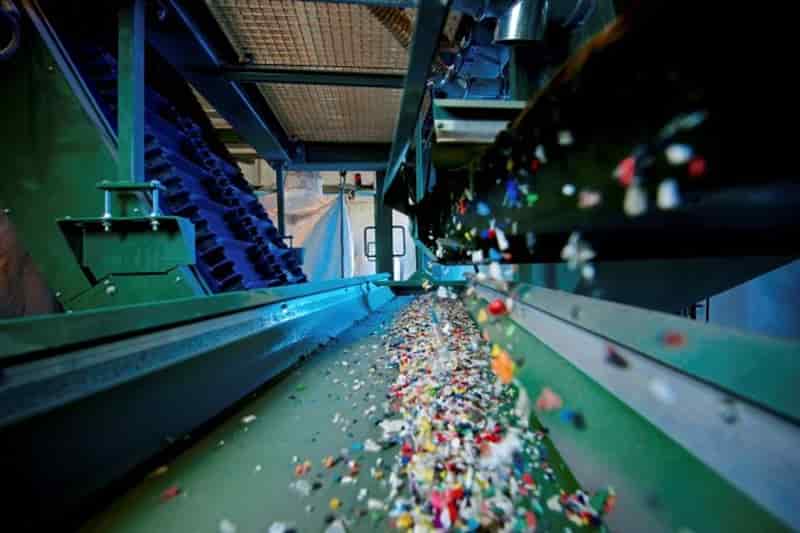
Cyclyx Welcomes Again Technologies to its Consortium
Cyclyx International, a consortium-based, post-use plastic innovation company with a mission to increase the recyclability of plastic from 10% to 90%, announces Again Technologies has joined the Cyclyx Consortium.
A supply chain partner, Again Technologies has experience bringing forth creative and strategic solutions to help ensure there is “no plastic left behind.” Again Technologies, a DCO International Group company launched in 2021, is the next generation business of the longstanding leader in plastic recycling. Again Technologies focuses on the potential value of plastic to be used again and again, instead of being destined for landfill. The visionary and driving force behind Again Technologies, CEO Claudine Osipow, has shaped and steered the innovation with her entrepreneurial spirit and determination to “show rather than tell.” Ecological Mobility
This performance-driven approach has yielded impressive results. As documented on their website, since 2016, Again has facilitated the recycling of nearly 500M pounds of plastic.
“The Again Technologies Team is excited to partner with the Cyclyx Consortium”, stated Claudine Osipow. “Our WHY has always been to provide true solutions to the many so-called impossible streams that are at end of life (EOL). This requires the ability to access new technologies as well as collaboration with new partners. The Cyclyx relationship gives Again Technologies new avenues to help our communities leave no plastic behind.”
“We are thrilled to have Again Technologies join the Cyclyx Consortium,” said Ron Sherga, Vice President, Membership Engagement at Cyclyx. Ecological Mobility
“With our combined experience of nearly half a century; science-based know-how; and practical, real-world application expertise, we can broaden the scope and scalability of our companies’ sustainability. It is clear that Again is well suited to help support Cyclyx’s mission to increase the recyclability of post-use plastics.”
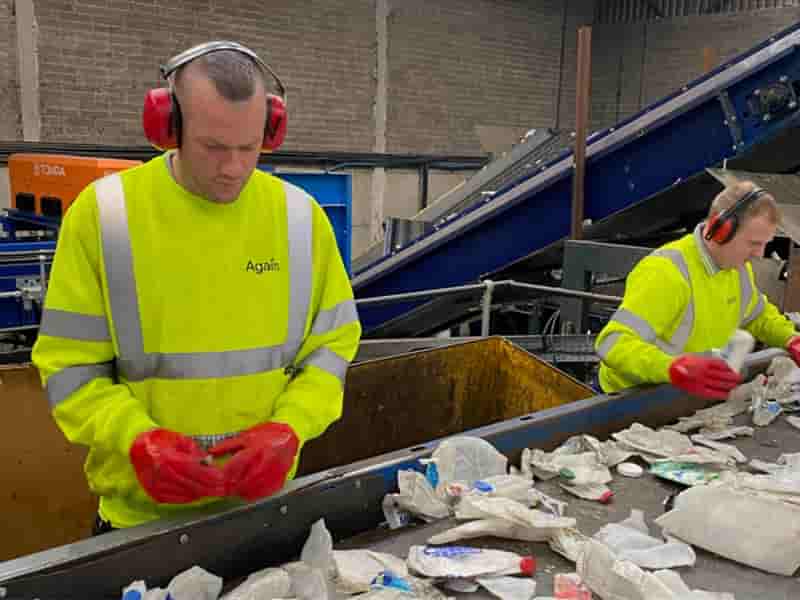
Construction of our recycled PET plant in Messein (Meurthe-et-Moselle)
Circular economy: Aloxe inaugurates its new recycled PET plastic manufacturing plant in Messei
Yesterday afternoon, on Thursday, November 16th, Aloxe inaugurated its new recycled PET plastic manufacturing plant in Messein (Meurthe-et-Moselle), in the presence of Julien Le Goff, Deputy Prefect, Secretary-General of Meurthe-et-Moselle Prefecture, Dominique Potier, MP for Meurthe-et-Moselle, Philippe Bolo, MP for Maine-et-Loire and an expert in this field, Audrey Bardot, VP of Meurthe-et-Moselle Departmental Council, Filipe Pinho, Chairman of the Moselle-Madon Federation of Municipalities, and Daniel Lagrange, Mayor of Messein. Ecological Mobility
Aloxe’s €25 million investment in this new plant provides a practical, tried-and-tested technological solution that responds immediately to the major challenges of reusing and recycling single-use foodgrade plastic bottles and, more broadly to the environmental transition in France and Europe.
In a mere two years, Aloxe has consolidated and accelerated its industrial development in France by opening the largest recycled PET manufacturing plant in the country, increasing its production capacity from 12.5 kt to 50 kt. In 2024, Aloxe will be independent leader in Recycled PET in Europe, with a 120kt capacity in France, Poland and Italy.
The new Messein plant, the largest recycled polyethylene terephthalate (PET) production facility in France Ecological Mobility
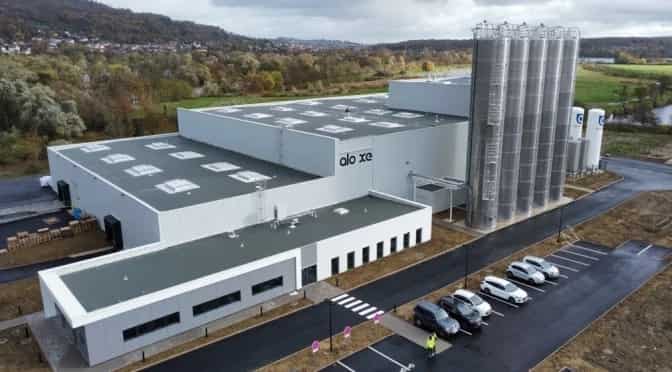
ECHA report confirms that regulatory action is needed on PVC and its additives
NGOs call on the European Commission to phase-out PVC by 2030
Civil society organisations welcome the publication of the investigation report on PVC (polyvinyl chloride) and its additives by the European Chemicals Agency (ECHA). The findings clearly indicate environmental damage and harm to health from some substances added to PVC and the release of its microparticles.
More than 60 environmental NGOs are calling on the European Commission to phase-out PVC by 2030.
Therefore they are pushing for a restriction on the harmful plastic and its additives under the REACH regulation. Ecological Mobility
The ECHA report sheds light on the damaging health and environmental impacts that PVC poses, some of which have been known for decades. The harmfulness of its additives is highlighted. ECHA moreover confirms the existence of safe alternatives across applications. The report supports the conclusion that we need immediate action by EU policy makers to reduce the risks of PVC and its additives. We therefore ask the Commission to act on PVC, as set out in the Restrictions Roadmap under the Chemical Strategy for Sustainability, and swiftly mandate ECHA to prepare an ambitious restriction under the REACH regulation as a first step to facilitate a complete phase-out of this material by 2030. Ecological Mobility
The NGOs see the need for this restriction to not only include single problematic substances or groups of additives, but also the production, use and placing on the market of PVC itself. Only essential uses of PVC, for which no safer alternatives are available and which are needed to protect our health or safety or are critical for society – should in their view be allowed under strictly controlled conditions.
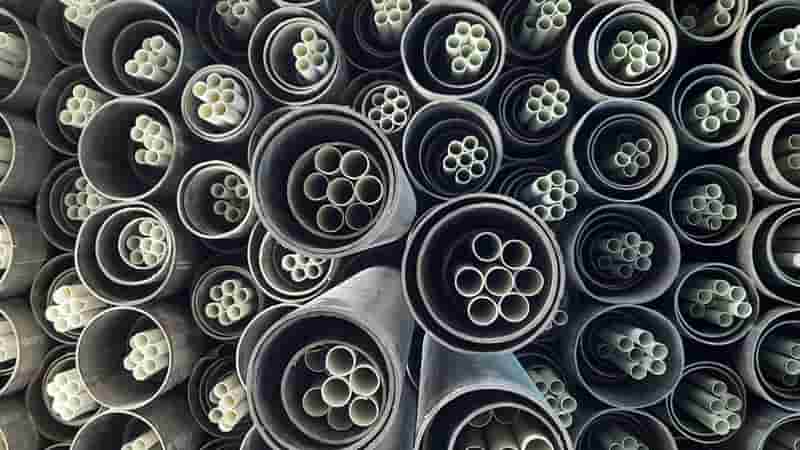
Ecological Mobility and Kinetic Energy Harvesting
In the ever-evolving landscape of clean energy, the focus on ecological mobility goes beyond electric vehicles, delving into harnessing untapped energy from vehicles themselves. This article explores the transformation of kinetic energy from decelerating vehicles into electricity, presenting a groundbreaking Italian innovation – the “Kinetic Energy Harvesting from Vehicles” (KEHV) project. Ecological Mobility
The heart of this technology is the Italian-made Lybra module, developed by startup “20energy,” which efficiently converts kinetic energy during deceleration or braking into electricity. The project, led by the Aspi Center of Excellence for Research and Innovation, is currently undergoing experimentation on the Italian highway network, particularly the Tuscan stretch of the A1.
Preliminary estimates suggest that a single Lybra module could potentially generate up to 30,000 kWh annually from an average daily passage of 9,000 vehicles. This innovation holds promising environmental benefits, potentially saving significant amounts of CO2 emissions and offering a sustainable energy source. Ecological Mobility
The article details specific pilot projects at toll booths and service areas, highlighting potential energy production and emissions reduction. Notably, the technology’s advantages over traditional photovoltaics include its ability to predictably generate kinetic energy day and night, regardless of weather conditions. The compact underground platforms require minimal space and offer a viable alternative to photovoltaic systems.
The KEHV project aligns with the broader “Mercury Smart Sustainable Mobility” program, aiming to establish a unified hub for technological innovation in transportation. This initiative reflects the commitment of the Autostrade per l’Italia group to modernize assets, enhance infrastructure sustainability, and contribute actively to the global decarbonization and digitization efforts in the realm of transportation. Ecological Mobility
As the experiment progresses, the potential incorporation of this kinetic energy harvesting system into broader sustainability initiatives is anticipated, illustrating a forward-looking approach to revolutionize energy resilience within highway infrastructure.
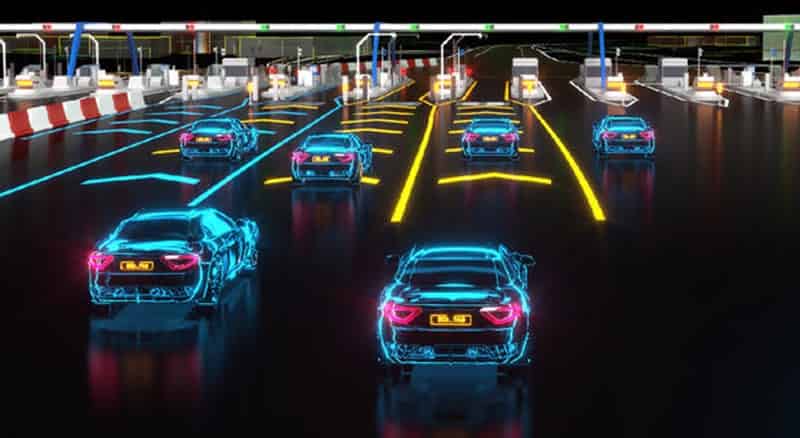
Ecological Mobility
